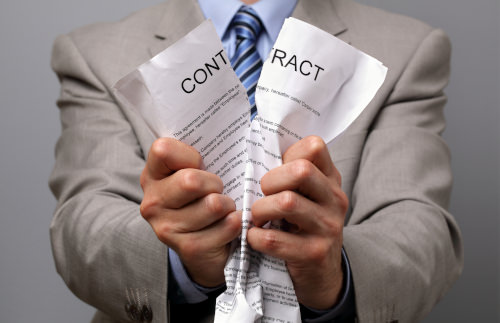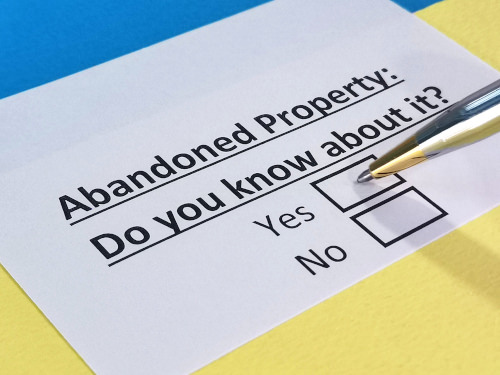
21 Sep 5 Clauses You Should Have in Your Lease
The lease agreement sits at the center of the landlord/tenant relationship and is probably one of the most, if not the most, important documents in your property management practice.
Unless you’re in the beginning stages of starting a property management company, you probably already have a lease that hopefully has been written or approved by an attorney specializing in landlord/tenant law. Attorneys however don’t think of everything. You’ll find yourself wanting to make additions or changes to a lease that was written 100% by an attorney so that it covers situations you encounter during the course of property management.
This is why it’s important to review leases annually to see if any modifications are needed. It’s a good idea to keep a running document to capture lease change ideas so that you can run all of your changes by your attorney after each annual lease review.
Here are 5 leases clauses that you may want to include in your lease agreement. Feel free to add them to your lease in whole or part, and modify to fit your needs or state requirements.
LEGAL DISCLAIMER: I am not an attorney and Property Management Training Headquarters is not a law firm. Nothing in this post should be construed as legal advice, and you are warned that the following lease clauses may not be in accordance with statutory requirements in your state. If you decide to us any or all of these clauses, you should first have them reviewed by a competent licensed attorney in your state.
Contents
Clause 1: Maintenance of Premises by Resident
Resident shall use customary diligence in maintaining and not damaging the Premises. Regardless of whether Resident is responsible for making any repair or performing any maintenance, Resident shall always be liable to Landlord for the cost of any repair or maintenance caused by Resident. Resident shall keep the yard free from all litter, dirt, debris, and any other obstruction. Resident shall be responsible for all routine maintenance repairs and replacements to the interior of the Premises to include, but not limited to, purchasing and changing furnace and water filters, purchasing and installing water softener items, replacement of light bulbs, etc. Resident shall change air filters a minimum of every three (3) months. Resident shall maintain the residence in a clean, sanitary, neat, safe, fit, habitable, and undamaged condition. Resident shall not permit any unlawful or wasteful activity on the Premises, and shall comply with all applicable laws, including but not limited to, building codes and laws regarding public health and safety. Resident shall be responsible for repair and replacement of broken windows and other structural items due to Resident’s negligence or vandalism, even if it is proven another party unknown to Resident has vandalized the screens or windows. Resident shall dispose of all ashes, rubbish, garbage, and any other waste in a clean and safe manner on a regular basis. Resident shall attempt to plunge all blocked/plugged toilets before submitting a maintenance request. Most blocked/plugged toilets are due to items flushed down the toilet that are not supposed to be flushed. Resident agrees to refrain from placing celery, onion, cornhusks, bones or glass or metal objects or other inappropriate items in any garbage disposal, and agrees to refrain from placing any foreign objects in the drains or toilets, such as sanitary napkins, tampons, disposable diapers, paper towels, facial tissues, bottle caps, etc. Resident must use plumbing fixtures and facilities, electrical, sanitary, heating, ventilating, air conditioning, and any other mechanical systems and appliances in a safe and reasonable manner, and in the manner and for the purposes for which they were designed. Without Landlord’s prior written consent, Resident shall not: make any alterations to the Premises including painting, place stickers, deface or permit the defacing of any part of the Premises; use or install any shades, awnings or window guards; install or remove any existing alarm systems, locks, air-conditioning units, space heaters, antennas, additional phone or cable TV outlets, satellite dishes or additional fixtures. Resident shall not drill any holes into the walls, woodwork, or floors of the Premises. If Resident makes or installs any decorations, alterations, additions, or fixtures without Landlord’s prior written consent, Resident agrees to remove, correct, repair, or replace at Resident’s expense. In order to prevent damage to the Premises and to, among other things, retard and prevent mold and mildew in humid conditions and to avoid freezing pipes in cold weather, Resident shall at all times provide appropriate or reasonable heating, climate control, ventilation, and lighting in the unit based on the circumstances. For similar reasons and others, Resident shall promptly notify Landlord of any air conditioning or heating malfunctions, visible moisture accumulation, mechanical problems, plumbing problems, water leakage, or mold growth. Resident shall notify Landlord promptly of any damage to the Premises, areas requiring maintenance, and any potential hazard or danger at the Premises. If Resident fails to report or delays in reporting a repair item, or does not make the Premises available to maintenance personnel in a timely manner which can cause further damage or hazardous condition, Resident will be held responsible for damage to the Premises. Resident shall not have the right to perform or arrange for repairs at Landlord’s expense, nor will there be any right of Resident to deduct the cost of any repairs from the rental payment without prior written authorization from Landlord or Agent. Unless agreed to in writing or required by law, no deductions will be allowed in the rent during periods of repair to the Premises, and this Lease will remain in full force and effect.
Key points contained in this maintenance clause:
- Tenant is liable for maintenance caused by tenant
- Makes tenant liable for air filters, water filters, water softener products, and light bulbs
- Makes tenant responsible to attempt to plunge toilets before requesting maintenance
- Provides a list of items tenant is NOT ot place down garbage disposals or toilets
- Informs tenant that they are not to make any alterations to property
- Tenant required to notify landlord promptly of any damage to property or maintenance needed
- Tenant not allowed to make or incur repairs at landlord’s expense without approval
Clause 2: Smoking
Smoking in the Premises, including the garage or any other covered area, is not allowed. If Resident smokes within the Premises, Resident shall be responsible for all resulting costs and damages due to Resident’s smoking. Resident understands and agrees that any damage caused by or related to cigarette, pipe, cigar, or other smoking shall not constitute ordinary wear and tear. For example, Resident agrees that costs for painting and for removal of smoke odor are not normal wear and tear. Resident shall at all times be solely responsible for due care and consideration to ensure that Resident’s smoking does not disturb, bother, or annoy other residents or neighbors.
Key points contained in this smoking clause:
- Smoking is not allowed inside the property including the garage or other covered areas
- Tenant liable for damages to property due to smoking
- Establishes that smoking related damages are NOT normal wear and tear
- Smoking cannot annoy or both neighbors or other residents
Clause 3: Landlord’s Access
Landlord shall have the right to enter the Premises, with notice when practical, without notice in the event of an emergency, or at any reasonable time to examine, inspect, repair, show, or for any other legitimate or necessary purpose which Landlord determines in its sole discretion. No entry by Landlord shall constitute an eviction in whole or in part at any time, nor shall Landlord be liable to Resident for any inconvenience or discomfort, and the rent shall not abate during any period that Landlord enters. Landlord may enter, regardless of whether Resident is present, by duplicate key, or other means when necessary or in the event of an emergency. Should Resident not allow Landlord or Agent to enter the property after being notified in accordance with this paragraph for the purpose of inspection, Resident will be charged a $[insert amount] Inspection Rescheduling Fee to compensate Landlord to the additional time, effort, and trip related expenses associated with an additional trip to inspect the Premises. Resident agrees that Landlord shall have the right to show the Premises to prospective residents at reasonable times for a period of sixty (60) days prior to the expiration of tenancy, based upon either Landlord’s or Resident’s written notice to vacate. Reasonable times are defined as being between the hours of 9:00 am – 7:00 pm including weekdays, weekends, and holidays. Resident agrees to keep the Premises in a clean and showable condition during the 60-day period of the notice to vacate. During this 60-day period, Landlord may install a key box at the Premises for the purpose of showing prospective residents the Premises. Landlord retains the right to place on the Premises a sign advertising the Premises for rent or for sale during the term of Resident’s tenancy. Landlord shall, whenever practical, give Resident twenty-four hours prior notice of intention to enter the Premises for the purpose of showing the Premises to prospective residents.
Key points contained in this landlord access clause:
- Landlord has the right to access property
- Tenant cannot abate rent just because landlord entered property
- Landlord may enter with or without tenant being present
- Tenant incurs an inspection rescheduling fee if they don’t allow entry
- Allows landlord right to show property to prospective new residents during 60-day notice period. You should adjust period based on your company or state’s requirements.
- Authorizes landlord to install lockbox for showing convenience
- Authorizes landlord to install a “For Rent” sign
The inspection rescheduling fee is a huge tool. If you have a bulk inspection day planned in which you’re intending to inspect, say, 5 properties in the same day in the same area of town, it is really annoying when you have one tenant call asking if you could schedule for another day. They always have a reason and it puts you in a position of having to either get confrontational to enforce your right to inspect as notified, or back down and inconvenience yourself by going back to the same part of town you were already in for your bulk inspections.
Instead, you can simply say, “I’d be happy to reschedule. However please know that per your lease, we have to charge a [whatever amount] inspection rescheduling fee for the additional cost incurred to come back to inspect just your home.” You’ll find that 9 out of 10 times, they will back down and let you do the inspection as scheduled to avoid the fee.
This also applies if the tenant has a locked room that they don’t want you to inspect because “it’s just a mess in there”. You respond with, “Sure, but we have to come back to inspect it and there will be an additional fee per your lease.”
The objective isn’t to collect as many of these fees as possible. It’s to use it as a tool to financially incentivize the tenant to abide by the lease.
Clause 4: Re-Letting Charge Upon Lease Break
Resident shall be liable to Landlord for a re-letting fee, if for any reason prior to the end of the Lease Term, any extension, or renewal, Resident vacates the Premises for any reason without fully performing all Lease covenants including Resident’s covenant to pay all rent due under the Lease (hereinafter “Lease Break Event”) for any Lease Term, extension, or renewal. Upon the occurrence of a Lease Break Event, Resident shall pay a re-letting fee in an amount equal to [insert #] month’s rent (“Re-Letting Fee”). Resident shall pay and otherwise be liable to Landlord for the re-letting fee upon the occurrence of a Lease Break Event regardless of the circumstances which Resident vacates, including but not limited to voluntary surrender, at the request of Landlord as the result of Resident’s default under the Lease, as the result of an eviction or forcible detainer proceeding, or otherwise. Resident agrees that the re-letting fee is a liquidated damage amount agreed to by Resident in consideration of among other things, Landlord agreeing not to charge Resident the Landlord’s actual re-letting damages. Resident agrees that the re-letting fee is not a Lease cancellation fee or a buy-out fee. Rather, Resident agrees that the re-letting fee is a liquidated amount covering only part of Landlord’s damages, that is, Landlord’s time, effort, and expense in finding and processing a replacement. Resident acknowledges that Landlord’s re-letting damages are uncertain and difficult to ascertain, particularly those relating to inconvenience, paperwork, advertising, showing the Premises, utilities for showing, checking prospects, office overhead, marketing costs, and locator-service fees. Resident agrees that the re-letting fee is due whether or not Landlord’s re-letting attempts succeed. Resident’s agreement to pay the re-letting fee, or Resident’s actual payment of the re-letting fee shall not under any circumstances release Resident from any liability to Landlord under this Lease for any other charges or amounts due under the Lease, including but not limited to, unpaid rent, future rent, utilities, cleaning charges, or any physical damage to the Premises, and Resident shall at all times remain liable for said amounts or any other breaches of the Lease, and Landlord shall retain all remedies for Resident’s breaches and other non-compliance with the Lease. Resident shall not be released from liability on this Agreement for any reason whatsoever unless specifically released by Landlord in writing.
Key points contained in this re-letting fee clause:
- Calls for tenant to pay a re-letting fee in an amount you determine to cover the costs associated with advertising, showing, and following all of the steps to find a replacement tenant
- Re-letting fee is due even if they vacate at the request of the landlord because of a default on the tenant’s part. Example: Tenant is destroying the house and landlord asks them to move out. If they oblige, they still owe the re-letting fee since the early move-out was due to their default.
- Re-letting fee is also assess for an eviction
- Not a lease cancellation or buyout fee. It only is to cover costs of re-letting the property. Tenant is responsible for all costs until a new tenant moves in.
Clause 5: Abandonment
Resident covenants to occupy the Premises and shall be in default if Resident does not occupy the Premises on a regular, continuing, and consistent basis, unless otherwise agreed to by Landlord in writing. Resident also abandons or surrenders the Premises ten (10) days after the death of a sole resident. If Resident abandons the Premises or vacates the Premises for any reason and leaves personal property within the Premises, Resident intentionally, specifically, and irrevocably waives all title and interest Resident has to such property and grants to Landlord full authority to immediately dispose of same without notice, court order, or accountability. Resident shall indemnify Landlord, and Landlord’s employees and representatives, against any claim or cost for any damages or expense with regard to the removal, disposal or storage of any property, including attorneys’ fees and costs regardless of who makes a claim against Landlord or any other indemnified in connection with Landlord’s removal of any property.
Key points contained in this abandonment clause:
- It is a default under the lease if the tenant does not occupy property on regular basis
- Property is considered abandoned 10 days after death of sole tenant
- Tenant waives any rights to any personal property left after vacancy or abandonment and landlord may dispose of it
- Tenant indemnifies landlord and their representatives against claims or costs associated with disposal of personal property deeded abandoned
Please be very careful with this clause. Your state almost certainly has something to say about abandoned property and procedures required to dispose of it. Once again, you’ll want to have an attorney ensure this clause is in accordance with your state statutes.
Hopefully these lease clauses piqued your interest and can be integrated into your lease to make your life as a property manager better. Remember that your lease is a living, breathing document. As laws change and new situations are encountered, your lease should also change so as not to become obsolete.









Sorry, the comment form is closed at this time.